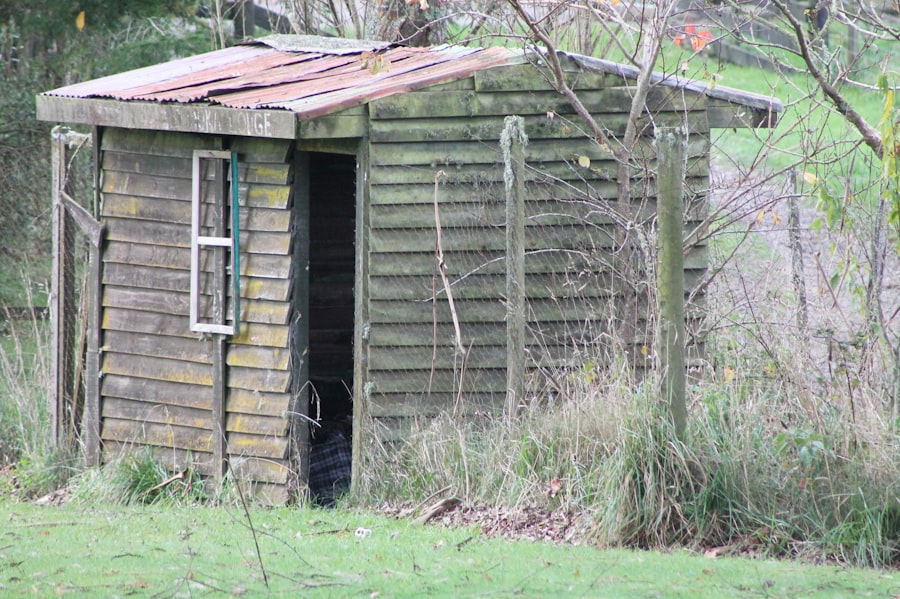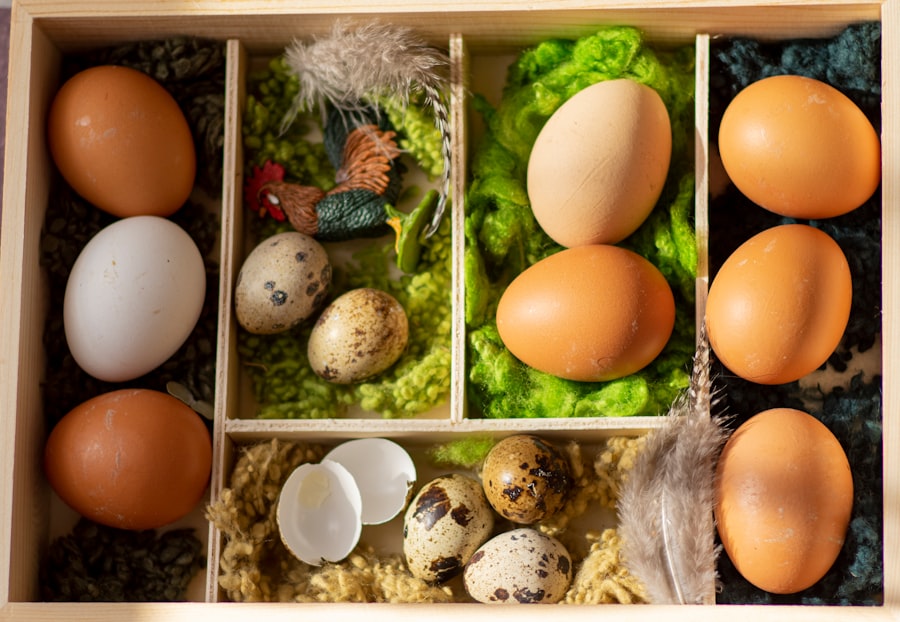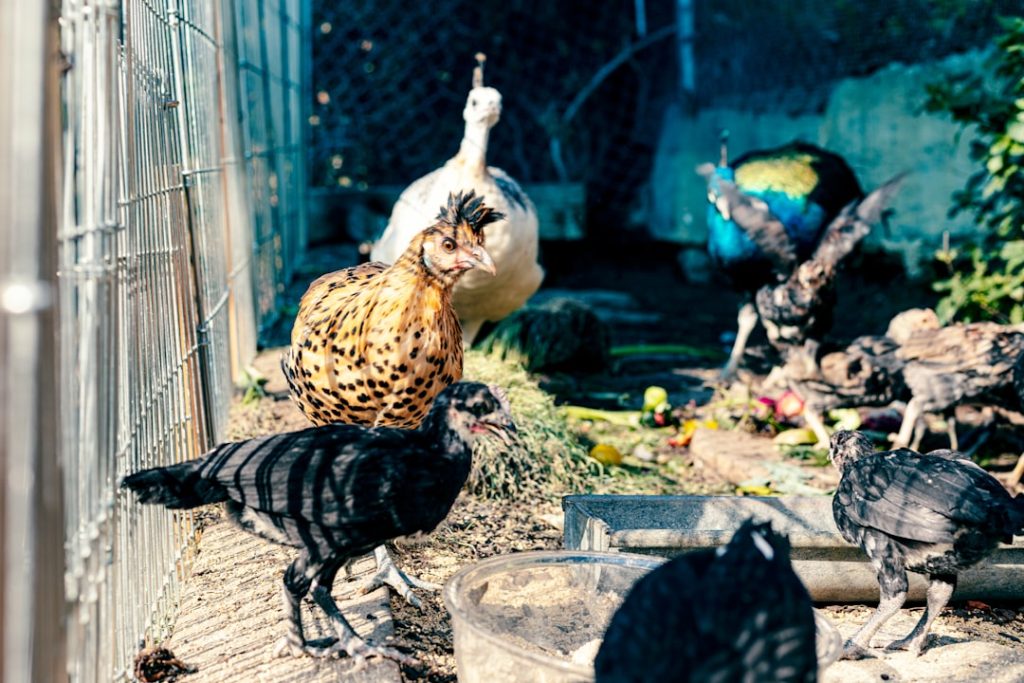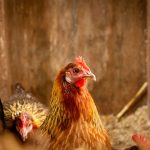Clean chicken feet are crucial for the health and welfare of poultry. Chickens use their feet for various activities, including walking, perching, scratching, and foraging. Maintaining clean feet helps prevent infections and diseases, such as bumblefoot, a potentially serious condition affecting the footpad.
Regular cleaning and inspection of chicken feet contribute to overall coop hygiene and reduce the risk of disease transmission within the flock. Proper foot care also enhances the comfort and well-being of chickens. Clean feet prevent the accumulation of dirt and bacteria that can cause irritation and discomfort.
This, in turn, helps avoid behavioral issues like reluctance to walk or perch, which can negatively impact the birds’ quality of life. Regular foot maintenance is an essential aspect of responsible chicken husbandry and plays a significant role in maintaining a healthy and contented flock.
Table of Contents
Key Takeaways
- Clean chicken feet are important for overall health and well-being of the bird
- Regular maintenance and cleaning of chicken feet is essential to prevent infections and diseases
- Providing a clean living environment is crucial for the health of the chicken’s feet
- Proper nutrition and hydration play a key role in maintaining healthy chicken feet
- Regular monitoring for health issues and timely intervention is important for the well-being of the chicken
- Trimming and inspecting claws is necessary to prevent overgrowth and discomfort for the chicken
- Consulting with a veterinarian is important for professional guidance and care for the chicken’s feet
Regular Maintenance and Cleaning
Inspecting and Cleaning the Feet
If you notice any buildup of dirt or debris on their feet, it’s essential to gently clean their feet using warm water and a mild soap. You can also use a soft brush to gently scrub away any dirt or debris, being careful not to cause any discomfort or injury to the chicken. After cleaning, be sure to thoroughly dry their feet to prevent any moisture from causing issues such as fungal infections.
Providing a Clean Living Environment
In addition to regular cleaning, it’s also important to provide your chickens with a clean living environment to help prevent their feet from becoming dirty in the first place. This includes regularly cleaning the coop and run area to remove any buildup of waste, dirt, or debris that could potentially affect the cleanliness of their feet.
Preventing Health Issues
By maintaining a clean environment, you can help to reduce the risk of infections and diseases that can affect their feet. Overall, regular maintenance and cleaning are essential for keeping your chicken’s feet in good condition and preventing potential health issues.
Providing a Clean Living Environment

Providing a clean living environment for your chickens is crucial for maintaining the health and cleanliness of their feet. This involves regularly cleaning the coop and run area to remove any waste, dirt, or debris that could potentially affect the cleanliness of their feet. It’s important to regularly remove soiled bedding, droppings, and any other waste from the coop to prevent the buildup of bacteria and parasites that can affect their feet.
Additionally, providing a clean living environment also includes ensuring that the coop is well-ventilated and free from excess moisture, as damp conditions can contribute to foot issues such as fungal infections. In addition to cleaning the coop, it’s also important to regularly clean and maintain the run area where your chickens spend time outside. This includes removing any debris or objects that could potentially cause injury or discomfort to their feet.
Providing a clean outdoor space for your chickens to roam and forage can help to prevent their feet from becoming dirty or irritated. Overall, by providing a clean living environment for your chickens, you can help to prevent potential foot issues and contribute to their overall health and well-being.
Proper Nutrition and Hydration
Proper nutrition and hydration are essential for maintaining the health of your chicken’s feet. A balanced diet that includes a mix of high-quality feed, fresh fruits and vegetables, and access to clean water is crucial for ensuring that your chickens receive the nutrients they need to support healthy feet. Certain nutrients such as protein, calcium, and vitamins are particularly important for maintaining strong and healthy feet in chickens.
Additionally, providing access to clean water at all times is essential for preventing dehydration, which can lead to issues such as dry and cracked feet. In addition to providing a balanced diet, it’s also important to monitor your chicken’s overall health and adjust their diet as needed. For example, if you notice any signs of nutrient deficiencies or issues with their feet, you may need to make adjustments to their diet or provide supplements as recommended by a veterinarian.
Overall, proper nutrition and hydration play a key role in maintaining the health of your chicken’s feet and preventing potential issues.
Monitoring for Health Issues
Regular monitoring for health issues is essential for ensuring the overall well-being of your flock, including the health of their feet. This involves regularly observing your chickens for any signs of discomfort, lameness, or changes in behavior that could indicate potential foot issues. Additionally, it’s important to inspect their feet on a regular basis to check for any signs of cuts, sores, swelling, or other abnormalities.
By staying vigilant and proactive in monitoring for health issues, you can catch potential problems early on and seek appropriate care as needed. If you notice any signs of foot issues or other health concerns in your chickens, it’s important to take prompt action to address the problem. This may involve seeking guidance from a veterinarian who can provide a proper diagnosis and treatment plan for your chickens.
By staying proactive in monitoring for health issues and seeking appropriate care when needed, you can help to prevent potential complications and ensure the overall health and well-being of your flock.
Trimming and Inspecting Claws

Trimming Claws for Comfort and Mobility
In addition to maintaining clean feet, it’s also important to regularly trim and inspect your chicken’s claws as part of their overall foot care. Overgrown claws can cause discomfort and mobility issues for chickens, so it’s important to trim them as needed to keep them at a healthy length. This can be done using specialized clippers designed for poultry or with the guidance of a veterinarian if you’re unsure how to do it yourself.
Inspecting Claws for Potential Issues
Regular inspection of their claws can help to identify any potential issues such as injuries or infections that may require attention. When inspecting their claws, be sure to check for any signs of overgrowth, damage, or abnormalities that could affect their comfort and mobility.
Addressing Claw Issues and Preventing Complications
If you notice any issues with their claws, it’s important to seek appropriate care to address the problem and prevent potential complications. By staying proactive in trimming and inspecting their claws, you can help to ensure that your chickens remain comfortable and mobile.
Consulting with a Veterinarian
Consulting with a veterinarian is an important aspect of responsible chicken ownership and can provide valuable guidance on caring for your flock’s feet and overall health. If you notice any signs of foot issues or other health concerns in your chickens, it’s important to seek guidance from a veterinarian who can provide a proper diagnosis and treatment plan. A veterinarian can also provide recommendations on proper nutrition, hygiene practices, and preventative care measures to help maintain the health of your flock.
Additionally, regular check-ups with a veterinarian can help to ensure that your chickens receive appropriate vaccinations and preventative care measures to protect against common diseases that can affect their overall health. By consulting with a veterinarian on a regular basis, you can stay informed on best practices for caring for your flock and address any potential health issues early on. Overall, working with a veterinarian is an important part of maintaining the health and well-being of your chickens.
In conclusion, maintaining clean chicken feet is essential for the overall health and well-being of your flock. Regular maintenance and cleaning, providing a clean living environment, proper nutrition and hydration, monitoring for health issues, trimming and inspecting claws, and consulting with a veterinarian are all important aspects of responsible chicken ownership that contribute to the health of their feet and overall well-being. By staying proactive in caring for your chicken’s feet, you can help to prevent potential issues and ensure that they remain healthy and happy members of your flock.
If you’re interested in learning more about keeping chickens, you might want to check out this article on building a farmhouse chicken coop. It provides valuable information on creating a comfortable and clean living space for your chickens, which is essential for maintaining their overall health and hygiene, including their feet.
FAQs
What are some common reasons for chickens to have dirty feet?
Chickens can have dirty feet due to walking in muddy or wet conditions, having access to dirty or soiled bedding, or having health issues such as scaly leg mites.
How can I prevent my chickens from getting dirty feet?
You can prevent chickens from getting dirty feet by providing clean and dry bedding, keeping their coop and run area clean, and providing perches to keep them off the ground.
What are some methods for cleaning chickens’ feet?
You can clean chickens’ feet by gently washing them with warm water and mild soap, using a soft brush to remove dirt and debris, and applying a moisturizing balm to keep their feet healthy.
What are some signs of foot problems in chickens?
Signs of foot problems in chickens include limping, swelling, redness, sores, or scabs on the feet, and changes in behavior such as reluctance to walk or perch.
How can I maintain good foot health in my chickens?
You can maintain good foot health in chickens by providing a clean and dry environment, regular inspection of their feet for any signs of problems, and providing proper nutrition to support overall health.
Meet Walter, the feathered-friend fanatic of Florida! Nestled in the sunshine state, Walter struts through life with his feathered companions, clucking his way to happiness. With a coop that’s fancier than a five-star hotel, he’s the Don Juan of the chicken world. When he’s not teaching his hens to do the cha-cha, you’ll find him in a heated debate with his prized rooster, Sir Clucks-a-Lot. Walter’s poultry passion is no yolk; he’s the sunny-side-up guy you never knew you needed in your flock of friends!







